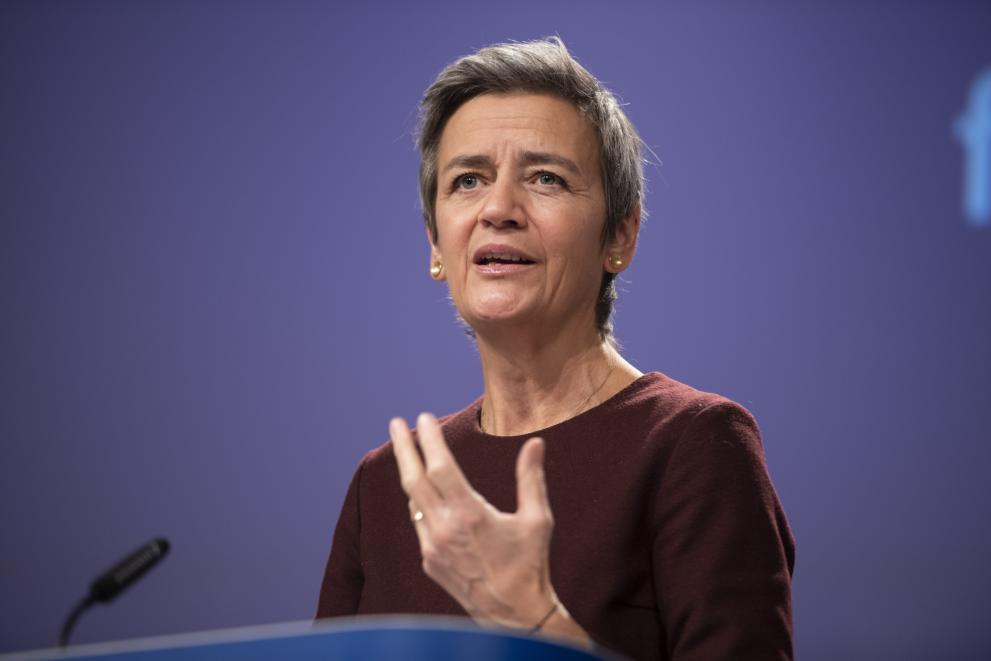
Interested parties can respond to the consultation until 11 February 2022.
Executive Vice-President Margrethe Vestager, in charge of competition policy, said: “We now invite all interested parties to share their views on our proposed targeted changes to the Broadband Guidelines. We want to make it easier for Member States to foster the deployment of broadband networks including Gigabit and 5G networks. But also to limit the competition distortions when the market does not deliver.”
The Broadband Guidelines aim at facilitating the deployment and take-up of broadband networks in areas suffering from insufficient connectivity services, such as remote and sparsely populated regions of the EU. They enable Member States, subject to certain conditions, to support modern infrastructures capable of providing end-users with high quality and affordable connectivity services and reduce the digital divide where commercial operators have no incentive to invest. At the same time, the Guidelines also aim at protecting private investments by providing that no public intervention can take place where private operators invest and at fostering fair competition through competitive selection procedures, technological neutrality and open access requirements.
The Commission has conducted an evaluation of the current Broadband Guidelines. The evaluation revealed that the current Guidelines work well, are broadly fit for purpose and have made an important contribution to the deployment of broadband networks. At the same time, the evaluation showed that some targeted adjustments of the existing rules are necessary to reflect the latest market and technological developments and fast evolving connectivity needs as reflected in the current EU priorities.
In this context, the Commission is proposing a number of targeted changes. More specifically, the proposed revision consists of:
- Introducing new speed thresholds for public support to Gigabit fixed networks and new guidance on support for the deployment of mobile networks. This aims at: (i) reflecting the increasing connectivity needs of end-users; and (ii) clarifying the conditions under which support may be granted, in particular with respect to the existence of a market failure and to the performance that the networks must achieve.
- Introducing a new category of possible aid in the form of demand-side measures supporting the take-up of fixed and mobile networks (vouchers). The purpose is to ensure legal certainty, by clarifying the compatibility conditions that the Commission applies in relation to these measures, based on recent case practice.
- Further clarifying certain concepts, which are important for the State aid assessment carried out by the Commission such as, among others, mapping, public consultations that need to be carried out before granting the aid, competitive selection procedure, wholesale access obligations, and extension of the subsidised networks with private funds.
The draft Broadband Guidelines and further details about the public consultation are available online.
Next Steps
In addition to the consultation launched today, the proposed text of the Broadband Guidelines will be discussed in a meeting between the Commission and the Member States that will take place towards the end of the consultation period. This process will ensure that both Member States and other interested parties will have sufficient opportunities to comment on the draft Commission's proposal.
The adoption of the new Broadband Guidelines is foreseen for mid-2022.
Background
The existing 2013 Broadband State Aid Guidelines allow for public investments where a market failure exists and where these investments bring a significant improvement (step change). This is also subject to certain other parameters to protect competition and private investment incentives.
The provisions of the Broadband Guidelines are complemented by the General Block Exemption Regulation (‘GBER'), which lays down ex ante compatibility conditions on the basis of which Member States can implement State aid measures without prior notification to the Commission.
Between 2014 and 2019, Member States spent approximately €30 billion in public funding, in compliance with EU State aid rules, to fill investment gaps in broadband infrastructure deployment and to reach the objectives set out for 2020 by the Digital Agenda for Europe.
According to the Digital Economy and Society Index, by mid-2020, already 87.2% of households in Europe had access to fast broadband of at least 30 megabits per second (Mbps) download speed, and 59.3% were passed by networks capable of supporting Gigabit speeds. By the end of June 2020, nearly all EU households (99.6%) were covered by 4G LTE mobile networks and 13.9% were covered by 5G networks.
In its Gigabit Society Communication the Commission identified the connectivity needs to be achieved by 2025 to build a European Gigabit society, namely: (i) all European households should have internet connectivity of at least 100 Mbps download speed, upgradable to 1 Gbps, (ii) socio-economic drivers such as schools, hospitals and public administration as well as digitally intensive enterprises should benefit from Gigabit connectivity (1 Gbps upload and download); (iii) all urban areas and all major terrestrial transport paths should be covered by an uninterrupted 5G network.
In February 2020, the Commission published the EU digital priorities among which the Communication on Shaping Europe's Digital Future and recalled that connectivity to achieve the EU 2025 objectives remains the most fundamental building block of the digital transformation of Europe.
The Digital Compass Communication envisages that, by 2030, all Union households should be covered by a Gigabit network, and all populated areas should be covered by 5G. The Digital Decade Policy Programme's proposal underlines that societal needs for upload and download bandwidth are constantly growing. It states that by 2030, networks with Gigabit speeds should become available at accessible conditions for all those who need or wish to have such capacity.
Details
- Publication date
- 19 November 2021
- Author
- Representation in Cyprus
